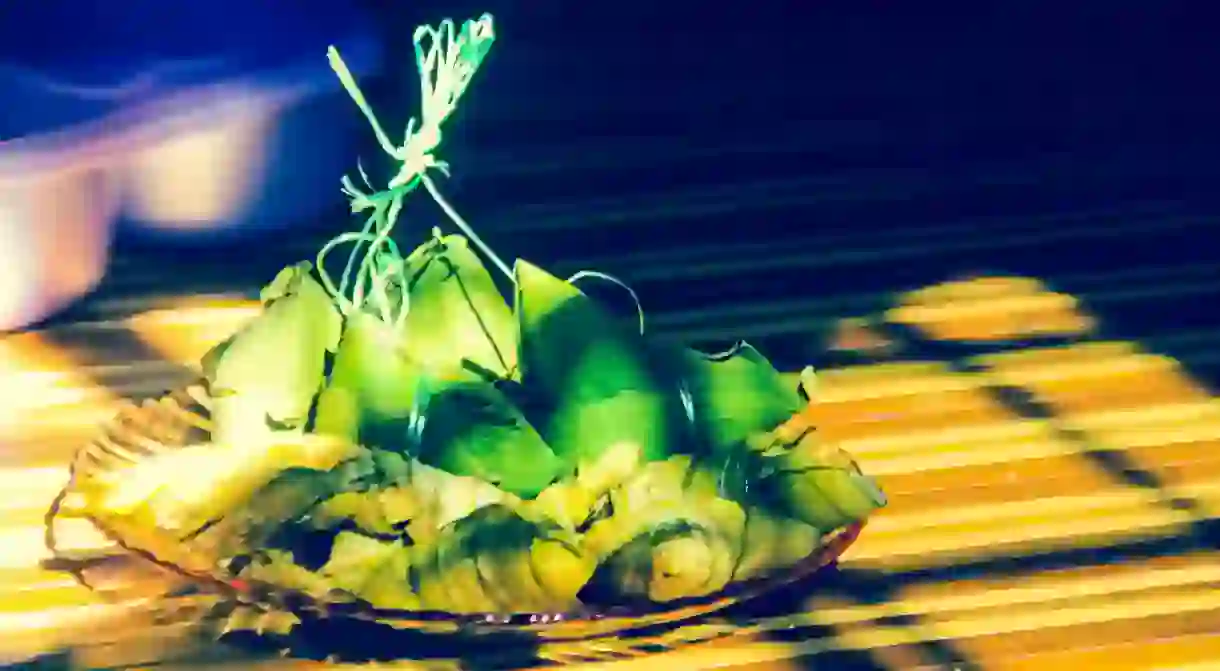Traditions Only Locals in Kuala Lumpur Can Understand

Malaysia’s rich multiculturalism has given way to many unique features in the way people express themselves. A curious, almost chaotic-like amalgam of three and more cultures, Kuala Lumpur as the heart of the country, is the best place to witness the manifestations of this hybrid singular culture of Malaysians.
Yee Sang and oranges for everyone during Chinese New Year
Yee Sang is a beautiful salad of pickled vegetables, fish, nuts, oils and seasonings tossed to celebrate luck and prosperity, as well as to make wishes for the new year. The higher you toss it, the more luck it brings. Often tables will end up really messy due to the fervor of wanting good vibes for those at the table, but all in all it is celebrated with great fun. Primarily eaten during Chinese New Year dinners, it has made its way to the other cultures of Malaysia as well, as they join in the season of festivities with their Chinese neighbors. Variations exist to accommodate the tastes and dietary restrictions of the other cultures. Yee Sang is a true Malaysian, southeast Asian dish, considering such a tradition rarely is performed in other eastern countries that celebrate the Lunar New Year.

The eating never stops
24-hour food joints, pasar malam tents occupying stretches of roads, roadside spots – the places you could go to eat anytime anywhere are endless. Serving up all kinds of food, from traditional Malay bamboo-smoked lemang rice to Chinese hot pot and modern iterations of burgers – Malaysia has a night life like no other. It isn’t a custom to turn in for the night early; for what other time does the hard-working population have to catch up with their friends and gossip about the whole day? Over a cup of teh tarik and a plate of satay with peanut curry for supper, rather than over the phone, is the way to go for all Malaysians regardless of job, race or religion.

Everything celebrated with lots of food and noise
No festival or event celebrated in Malaysia by any of its multiple cultures, is conducted with serenity. If something is to be celebrated, it must be done in the noisiest and liveliest way possible to express jubilant gratitude and to ward off demons seeking to ruin a happy occasion. During Chinese New Year, the signature fire crackers are brought out, while during Deepavali and Thaipusam the sounds of prayer bells and fireworks fill the air. Even during Hari Raya and official events, the sounds of the kompang – the traditional Malay hand percussion instrument – is heavily featured. Large family dinners are often held, with literally everyone invited. Imagine gatherings the size of wedding banquets, but for all the cultural holidays.

Speaking more than three languages in a single sentence
While it is common to find certain cultures speaking in their mother tongue to each other – it is the interactions between people of differing cultures to carefully observe. Focus on the old timers, or when someone local gets really excited or absent minded, and the Freudian slip of language will occur. Even those who speak primarily in a single language will switch to another to get the message across more clearly. It’s a common custom to pick up a few words in a language not your own, to communicate better with another person of that language.
For example, when ordering at the mamak, a local person might say, ‘Anneh, roti canai, dua, ta pau, thank you.’
Multilingual breakdown, with the languages in brackets: Brother (Tamil), roti canai (Hindi), two (Malay), take away (Mandarin), thank you (English).
Fusing traditional foods in a meal
Much like our languages, we also have a customary habit of mixing our dishes during a single meal. Imagine a spread of Malay nasi kerabu (steamed blue rice), Indian curries and a side of Chinese noodles for lunch. Or how about some sup tulang (Malay bone broth) with putu mayam (Tamil sweet noodles) and Chinese fried oysters for supper? Feast your heart out with every cultural delicacy combination possible, at most food courts and markets, with the little exception of pork sometimes, as it is against the Muslim religion to consume non-halal food.

Everyone celebrates everyone else’s celebrations
Despite being quite different in how each of the cultures present their celebrations, one thing is for certain – it will be loud, vibrant, and not closed off to only one culture. The reason behind our foods and languages blending into each other is because when one faction celebrates, it is a customary tradition for all the others to join in as well. There will be traffic jams galore during any season of festivities all year round to accommodate all the cultural and religious celebrations going on. The beloved term of ‘balik kampung’ meaning ‘return to the homestead’, applies to everyone during a major celebration and public holidays will be given, making up for a lot of days off for school children and certain parts of the country, depending on the season.














